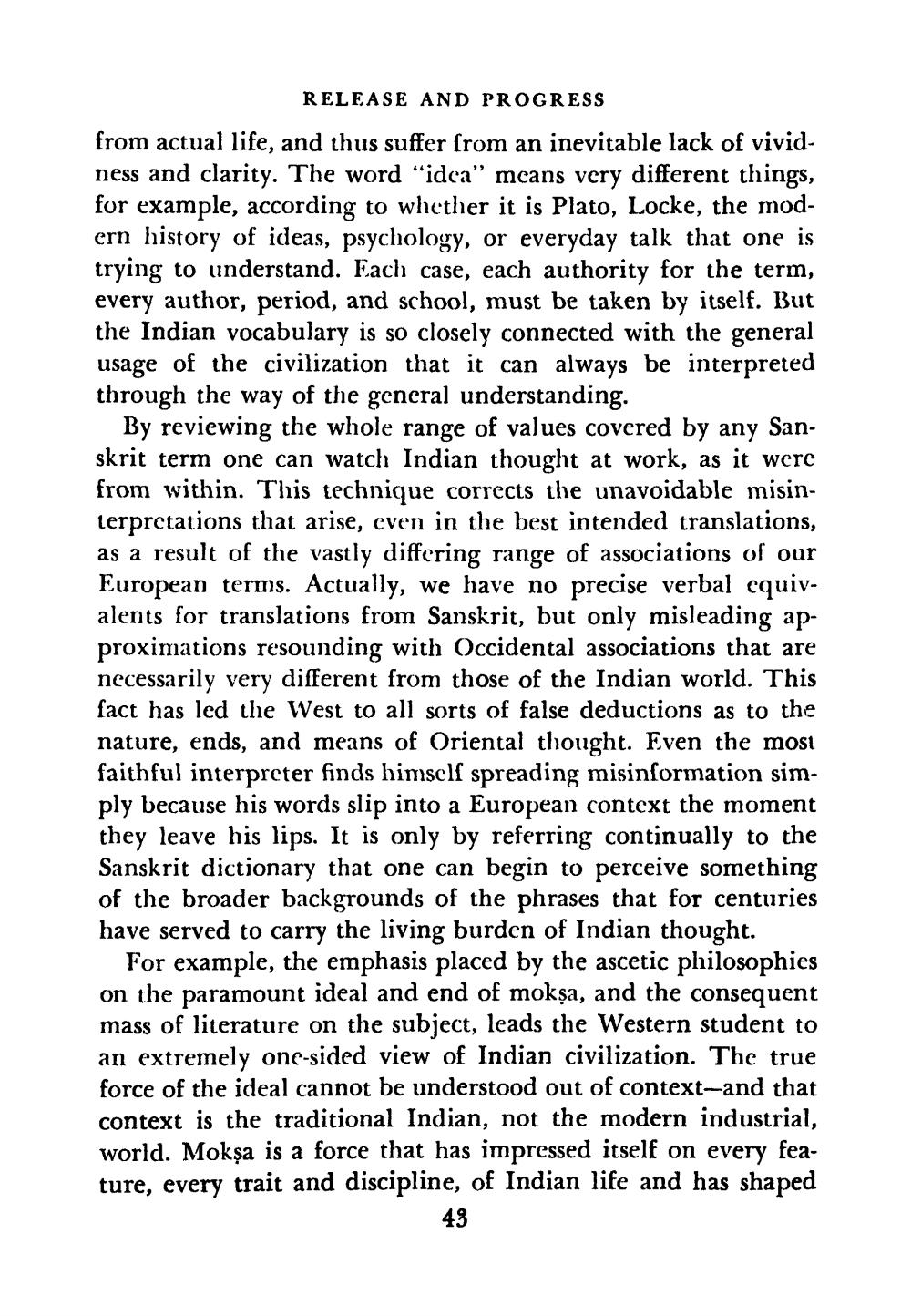________________
RELEASE AND PROGRESS
from actual life, and thus suffer from an inevitable lack of vividness and clarity. The word “idca" mcans very different things, for example, according to whether it is Plato, Locke, the modcrn history of ideas, psychology, or everyday talk that one is trying to understand. Fach case, each authority for the term, every author, period, and school, must be taken by itself. But the Indian vocabulary is so closely connected with the general usage of the civilization that it can always be interpreted through the way of the general understanding.
By reviewing the whole range of values covered by any Sanskrit term one can watch Indian thought at work, as it were from within. This technique corrects the unavoidable misinterprctations that arise, even in the best intended translations, as a result of the vastly differing range of associations of our European terms. Actually, we have no precise verbal cquivalents for translations from Sanskrit, but only misleading approximations resounding with Occidental associations that are necessarily very different from those of the Indian world. This fact has led the West to all sorts of false deductions as to the nature, ends, and means of Oriental thought. Even the most faithful interpreter finds himself spreading misinformation simply because his words slip into a European context the moment they leave his lips. It is only by referring continually to the Sanskrit dictionary that one can begin to perceive something of the broader backgrounds of the phrases that for centuries have served to carry the living burden of Indian thought.
For example, the emphasis placed by the ascetic philosophies on the paramount ideal and end of mokşa, and the consequent mass of literature on the subject, leads the Western student to an extremely one-sided view of Indian civilization. The true force of the ideal cannot be understood out of context-and that context is the traditional Indian, not the modern industrial, world. Mokșa is a force that has impressed itself on every feature, every trait and discipline, of Indian life and has shaped
49




